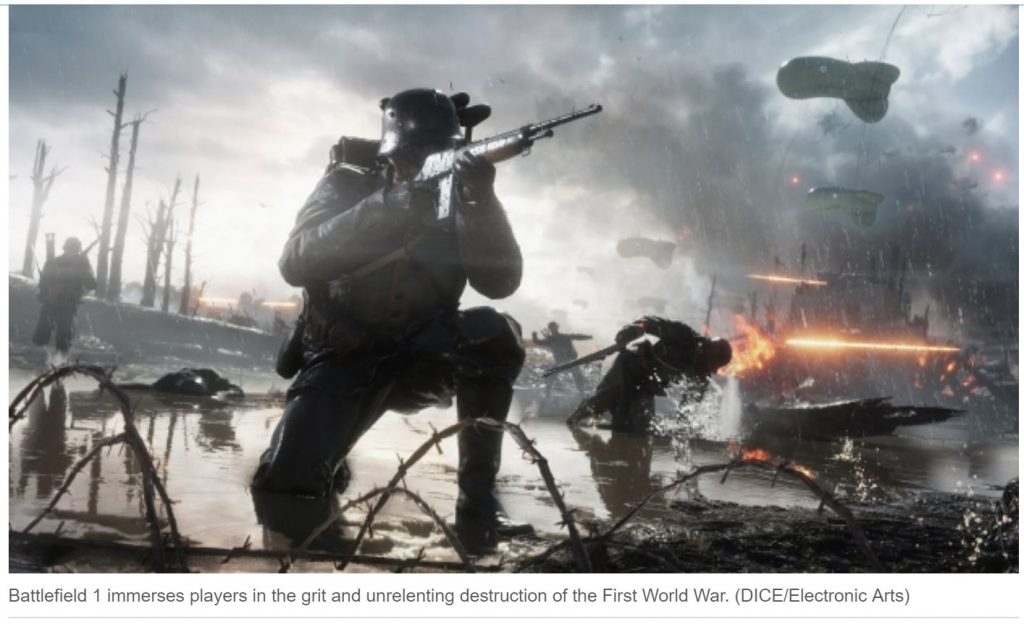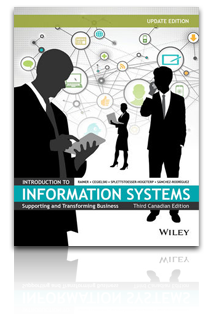After about two minutes — if you survive that long — you run out of ammo, and find yourself outnumbered. When you’re inevitably gunned down, a short card with your soldier’s name and lifespan appears on the screen — for example, “Matthew Collings (1884-1918).” Then you’re placed in the role of another doomed recruit, in another part of the battlefield. The point Battlefield 1 clearly wants to make is that the war took young soldiers’ lives by the thousands — most of them never had the chance for a moment of glory.
Source: CBC
Date: November 9th, 2016
Link: http://www.cbc.ca/news/entertainment/battlefield-1-history-1.3821500
Discussion
1) “I think it really drove home, in a very small nutshell, what I think some of these battles must have felt like,” he said. “I think it was quite poignant.” In what ways might a game like this be used in school or university, or is it not appropriate?
2) In what other ways might games like this be used to educate?



Leave a Reply